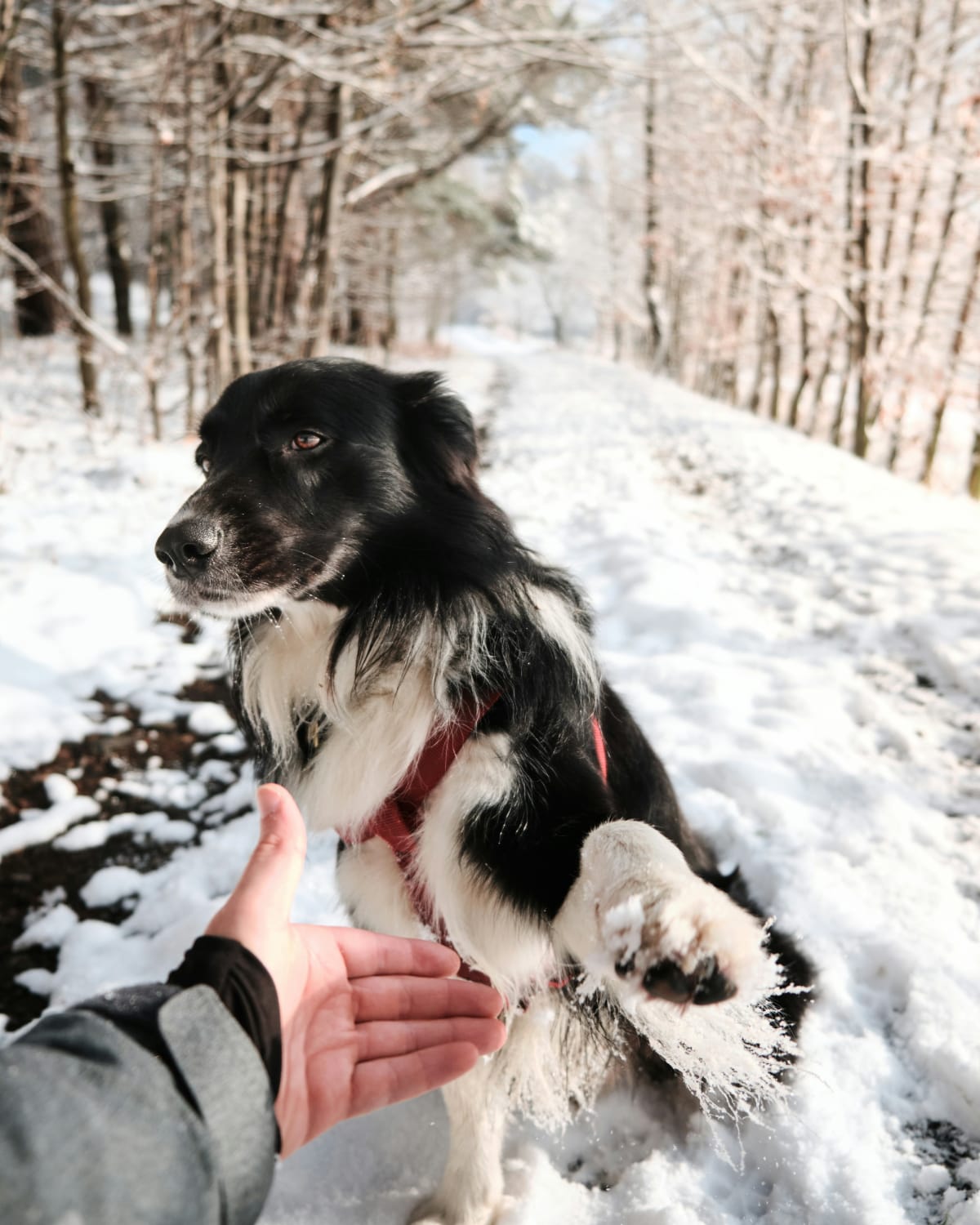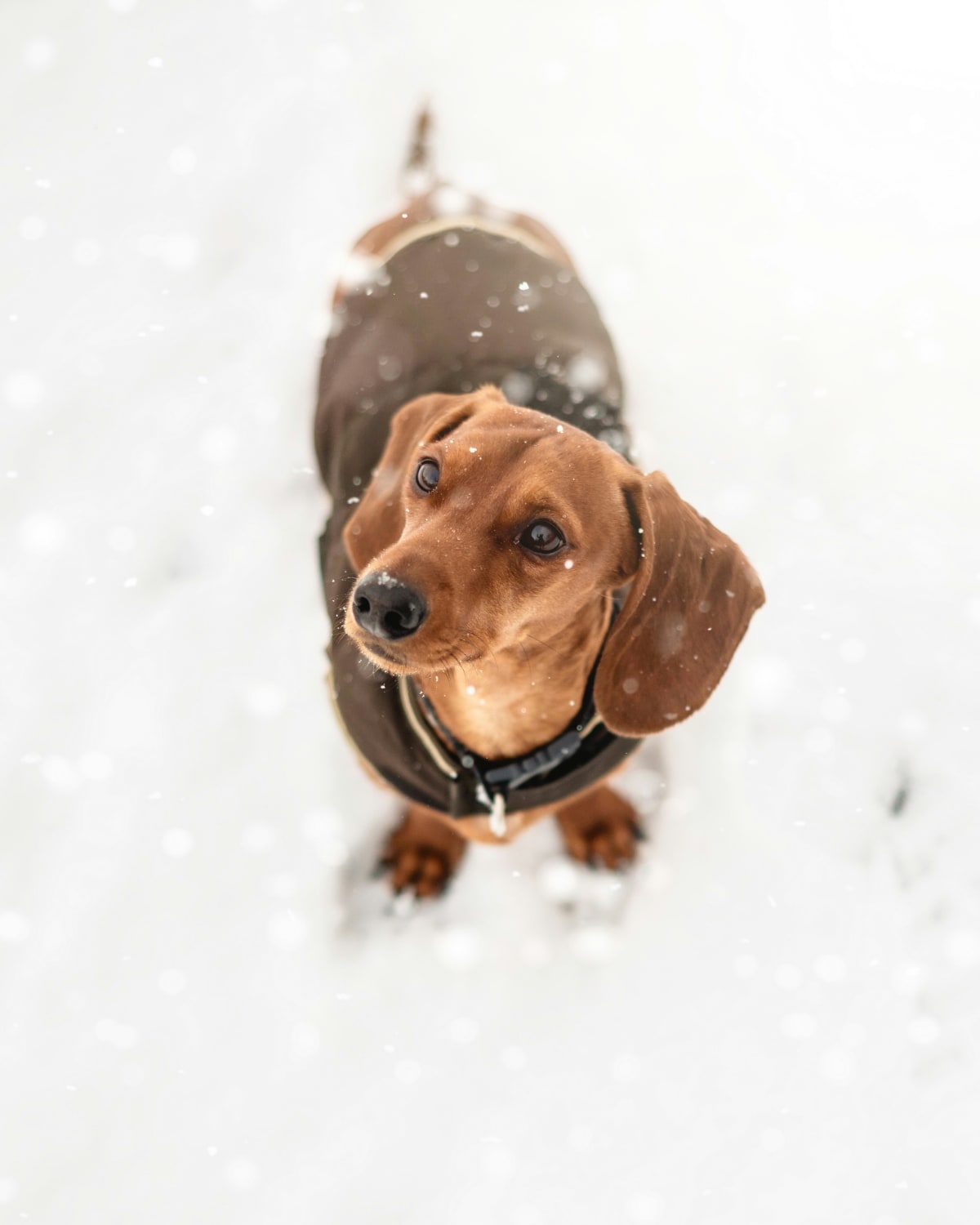Most pet owners are aware of the risks hot weather poses to their dogs. But many forget how dangerous cold weather can be for their furry friends.
Here are the top 5 cold weather tips for dogs.
1. Know the Limits of Your Dog

No dog is the same and it is important to consider your pet’s limitations to understand its needs this winter. The first thing every new dog owner should do is research their breed. If your dog is a mix, include all known breeds in your research.
Understanding your breed’s origins will help with cold weather animal safety. If your breed is short-haired and originated in a warmer climate, then you will need to take extra steps to keep it warm during cold months.
It is also important to remember health because dogs with these ailments have more trouble regulating body temperature:
- Diabetes
- Heart disease
- Kidney disease
- Hormonal imbalance
2. Check Their Paws
Road salt, antifreeze and de-icers can irritate paws and are extremely poisonous to dogs. Do not allow your dogs to lick their paws after winter walks. Instead, keep a clean towel by the door to wipe their paws with after every walk.
It is also imperative for every new dog owner to check their puppy’s paws for damage in cold weather. Check for cracking, bleeding or burning from ice accumulation.
A major part of cold weather animal safety is being aware of your pet. Pay attention to anything out of the ordinary during the cold weather months.
3. Avoid the Ice
 Frozen lakes or even small streams can be extremely dangerous to dogs during the winter. It is impossible to tell how strong the ice is and it can be deadly if they fall through. It is best to avoid the ice at all costs with your dog.
Frozen lakes or even small streams can be extremely dangerous to dogs during the winter. It is impossible to tell how strong the ice is and it can be deadly if they fall through. It is best to avoid the ice at all costs with your dog.
Additional winter tip for your dog: Keep them leashed! Snow hides scent trails and more dogs become lost and disoriented in the winter than in any other season.
4. Provide Adequate Shelter From the Elements
Pay attention to freeze warnings or inclement weather when creating your winter safety list for your dog. If they spend the night outside, even in milder climates, they need adequate shelter to shield them from the elements.
This shelter should be dry, draft-free, have plenty of room, and sit off the ground. The ground is colder than the air at night so your dog’s shelter needs to be off the ground by a few inches.
5. Prepare for Extreme Winter Weather
Every new dog owner should be prepared for extreme winter weather that can cause power outages. Make sure you have enough food, water, and medication for your dog to last two weeks in case of an ice or snowstorm.
Have a plan for getting to the vet and keeping your dog properly exercised and entertained during power outages. It is also important to keep them warm!
Puppies and dogs make wonderful companions during the long winter months. Make sure they are properly cared for and kept safe this winter season with these 5 tips. If you’re looking for a new furry companion for the winter, find a puppy on Lancaster Puppies today!

